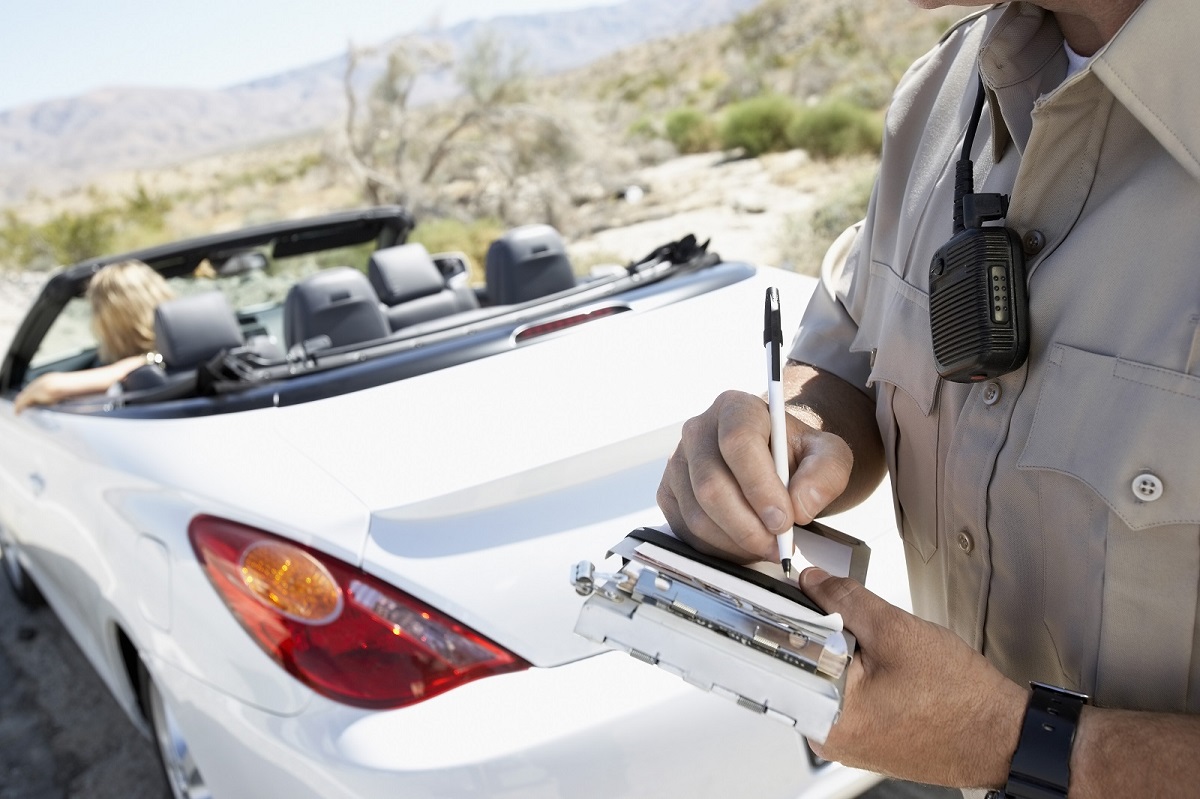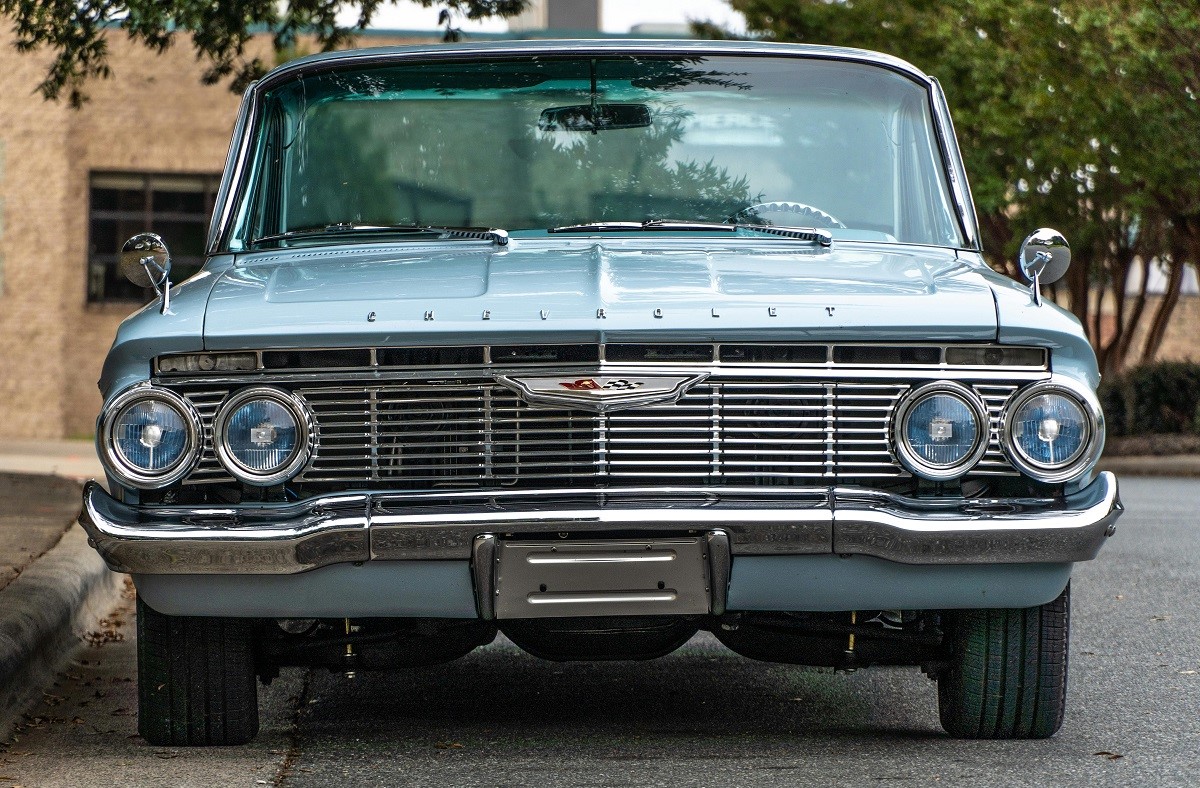With the rise of digital transactions and online marketplaces, car-related scams have become increasingly sophisticated. Whether you’re buying, selling, or simply maintaining a vehicle, it’s crucial to be aware of the latest tricks scammers use. How can you protect yourself from falling victim to these deceptive schemes? Here’s a guide to spotting and avoiding the most common car-related scams.
1. Fake Car Listings

Image Credit: Shutterstock / Aleksandar Karanov
Scammers often create fake car listings to lure buyers into paying for vehicles that don’t exist. These listings typically feature attractive prices and low-mileage claims but are designed to collect deposits or personal information. Always verify the legitimacy of a listing by meeting the seller in person and inspecting the car before making any payments.
2. Phishing Scams

Image Credit: Shutterstock / LightField Studios
Phishing scams involve fraudulent emails or messages that appear to come from legitimate car dealerships or financial institutions. These messages often request personal information or direct you to fake websites. Be cautious with emails or texts asking for sensitive details, and always verify the source before clicking on any links or providing personal information.
3. Title Washing

Image Credit: Shutterstock /
Nestor Rizhniak
Title washing is a scam where a vehicle’s history is manipulated to hide previous damage or salvage status. Scammers may alter titles to make a car appear accident-free. To avoid this, use services like Carfax or AutoCheck to obtain a comprehensive vehicle history report and verify the title status through your local DMV.
4. Odometer Fraud

Image Credit: Shutterstock / DmytroPerov
Odometer fraud involves rolling back or altering a car’s odometer to misrepresent its mileage. This deception can lead buyers to pay more for a vehicle that has more wear and tear than advertised. Check the vehicle’s service records and cross-reference the mileage with reports from inspection services to uncover any inconsistencies.
5. Phony Warranty Offers

Image Credit: Shutterstock / VesnaArt
Scammers may offer extended warranties or service contracts at incredibly low prices, only to disappear after collecting payment. These fake warranties often come with limited or no coverage. Research warranty providers thoroughly and verify their legitimacy before purchasing any extended coverage.
6. Fake Repair Shops

Image Credit: Shutterstock / Ground Picture
Some scammers operate fake repair shops to charge for non-existent or unnecessary repairs. These shops may use aggressive tactics to get you to pay upfront for services. Check reviews, ask for recommendations, and ensure the shop is accredited by reputable organizations before committing to any repairs.
7. Overpayment Scams

Image Credit: Shutterstock / Drazen Zigic
In overpayment scams, a buyer offers to pay more than the agreed price and asks the seller to refund the difference. After the refund is sent, the original payment method is discovered to be fraudulent. Avoid any transaction where the buyer insists on paying more than the asking price and requires a refund.
8. Fake Escrow Services

Image Credit: Shutterstock / TZIDO SUN
Scammers may create fake escrow services to manage transactions, only to disappear with the funds once the deal is closed. Genuine escrow services offer a secure way to handle transactions and are often provided by reputable third parties. Verify the legitimacy of any escrow service by checking its credentials and reading reviews from past users.
9. Identity Theft

Image Credit: Shutterstock / PeopleImages.com – Yuri A
Car-related transactions can sometimes lead to identity theft if personal information is stolen during the process. Scammers may use stolen data for fraudulent activities. Protect your personal information by using secure payment methods and avoiding sharing sensitive details over unsecured channels.
10. False Title Transfers

Image Credit: Shutterstock / goodluz
Scammers may offer to handle the title transfer process for you but fail to complete the transaction, leaving you without proper documentation. Always handle title transfers through official channels and verify that all paperwork is completed correctly before finalizing the deal.
11. Rental Car Scams

Image Credit: Shutterstock / Supavadee butradee
Rental car scams involve fake rental agencies or deceptive practices by legitimate ones, such as hidden fees or unexpected charges. Scammers may also create fake listings for non-existent rental vehicles. Research rental agencies thoroughly, read reviews, and carefully review the terms and conditions before booking a vehicle.
12. Unlicensed Dealers

Image Credit: Shutterstock / Max kegfire
Unlicensed or shady car dealers may offer attractive deals but fail to provide legitimate documentation or warranties. These dealers often operate without proper business licenses or consumer protections. Always buy from licensed and reputable dealers who are recognized by local automotive associations.
13. Loan Scams

Image Credit: Shutterstock / Ground Picture
Loan scams target individuals seeking financing for vehicle purchases, offering to secure loans with upfront fees. Once the fees are paid, the scammer disappears without providing any funding. Work with reputable lenders and financial institutions, and be cautious of anyone asking for payment before processing a loan.
14. Fake Recalls and Repairs

Image Credit: Shutterstock / Ann Kosolapova
Scammers may claim that your car is subject to a fake recall or needs urgent repairs to induce unnecessary work or fees. These schemes often involve aggressive sales tactics and misleading information. Verify any recall or repair claims through official sources such as the National Highway Traffic Safety Administration (NHTSA).
15. Fake Car Auctions

Image Credit: Shutterstock / Tada Images
Scammers may create fake car auctions to trick buyers into paying for vehicles that don’t exist or are already sold. These auctions often feature deals that seem too good to be true. Participate only in reputable and verified auctions, and be wary of deals that seem overly attractive.
16. Fake Vehicle History Reports

Image Credit: Shutterstock / Yulai Studio
Some scammers produce fraudulent vehicle history reports to hide issues such as accidents or flood damage. These fake reports can mislead buyers about a car’s true condition. Always obtain vehicle history reports from trusted services like Carfax or AutoCheck and cross-check the information with other sources.
17. Fake Reviews and Testimonials

Image Credit: Shutterstock / Andrew Will
Scammers may post fake reviews or testimonials to promote their services or products, making them seem more reputable than they are. These misleading reviews can sway your decision-making process. Cross-reference reviews from multiple sources and rely on verified customer feedback for accurate insights.
18. Non-Existent Vehicle Guarantees

Image Credit: Shutterstock / Roman Fenton
Offers of non-existent vehicle guarantees or cash-back deals are often scams designed to collect your personal information or upfront fees. These guarantees promise unrealistic benefits and typically lack legitimate backing. Be cautious of any deal that seems too good to be true and verify the terms through reputable sources.
19. Counterfeit Car Parts

Image Credit: Shutterstock / Max kegfire
Scammers may sell counterfeit or substandard car parts as genuine, risking your vehicle’s performance and safety. These parts often come with misleading labels and lack proper certification. Purchase car parts from authorized dealers and verify their authenticity through manufacturer verification.
20. Social Media Scams

Image Credit: Shutterstock / SFIO CRACHO
Social media platforms can be a breeding ground for car-related scams, including fake ads or offers. Scammers use social media to exploit users by promoting non-existent vehicles or services. Always conduct thorough research and avoid engaging with suspicious accounts or offers.
21. Incomplete Documentation Scams

Image Credit: Shutterstock / fizkes
In some cases, scammers may provide incomplete or fraudulent documentation for vehicles, making it difficult to verify ownership or history. Ensure that all documentation, including titles and service records, is complete and accurate before completing any transactions.
Drive Smart

Image Credit: Shutterstock / Ground Picture
Navigating the world of car transactions can be tricky, especially with the prevalence of sophisticated scams. By staying informed and vigilant, you can avoid falling victim to these deceptive practices and make safer, more secure decisions. Remember, a little caution goes a long way in ensuring your car-related dealings are both safe and satisfactory.
Police Magnet: 7 Cars That Guarantee You’ll Get Pulled Over

Image Credit: Shutterstock / sirtravelalot
Driving certain cars can make you more noticeable to law enforcement, even if you’re abiding by all the rules. Are you driving one of these “police magnets”? Here are seven cars that seem to attract more police attention than others. Police Magnet: 7 Cars That Guarantee You’ll Get Pulled Over
The Classic Cars That Were Total Clunkers

Image Credit: Pexels / Pixabay
Nostalgia has a funny way of making the past seem better than it was, especially when it comes to cars. But here’s the hard truth: some of those “classic” cars your dad raves about were real clunkers. Here’s a closer look at why some of those so-called “classics” weren’t all they were cracked up to be. The Classic Cars That Were Total Clunkers
The Worst U.S. Cars Ever Made: A Retro List

Image Credit: Pexels / Be The Observer
The U.S. auto industry has produced some incredible vehicles, but not every model was a hit. Here’s a look back at 16 of the worst cars ever made in the U.S., each infamous for its own unique flaws. The Worst U.S. Cars Ever Made: A Retro List
Featured Image Credit: Shutterstock / Sergei Gontsarov.
For transparency, this content was partly developed with AI assistance and carefully curated by an experienced editor to be informative and ensure accuracy.
The images used are for illustrative purposes only and may not represent the actual people or places mentioned in the article.



